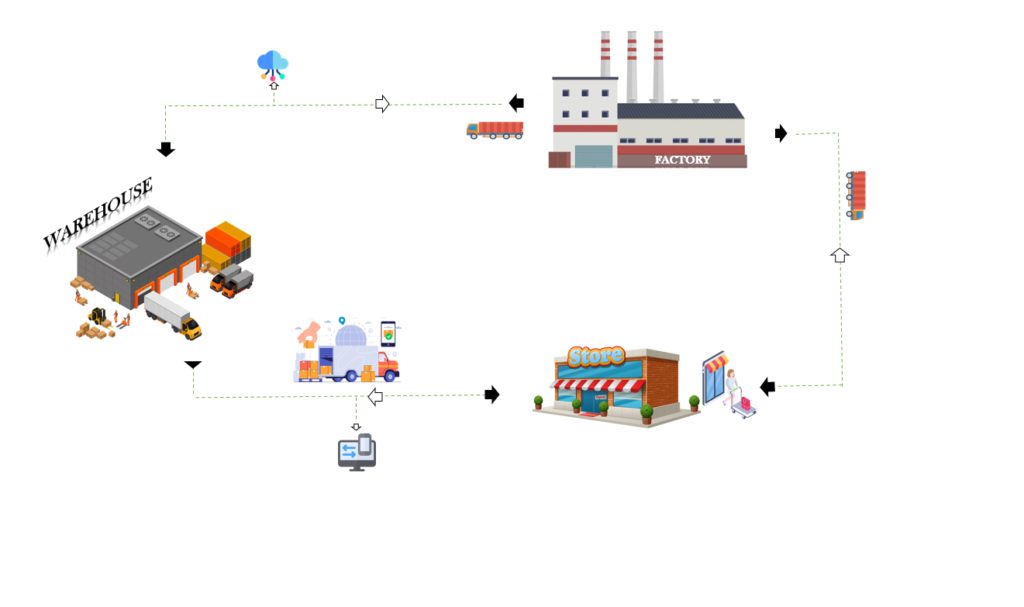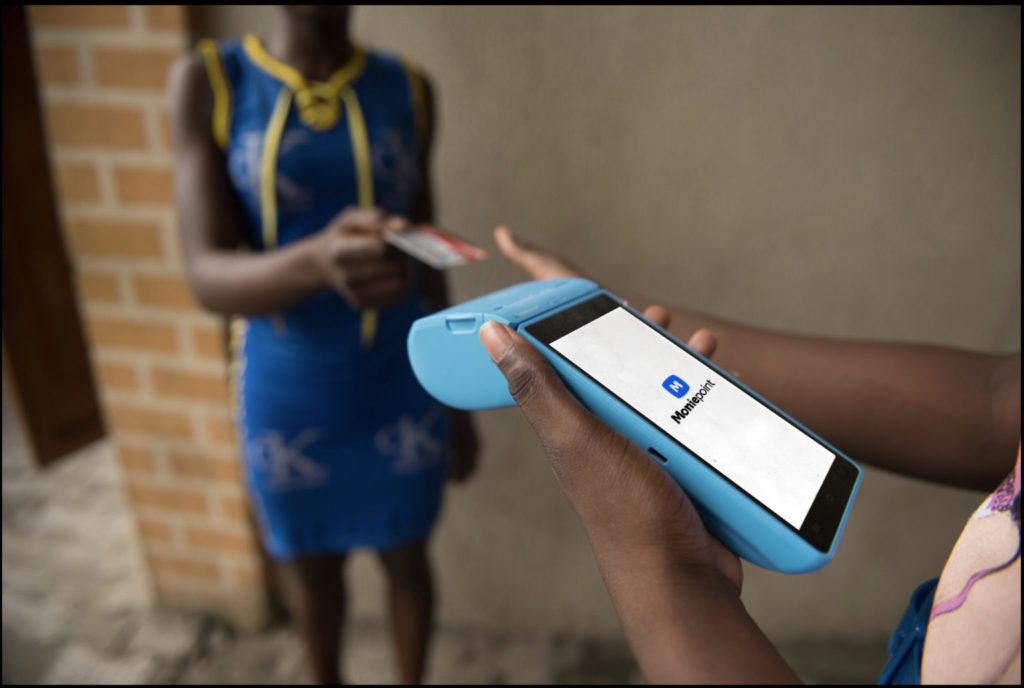
Introduction
Establishing a robust distribution network in Africa has always been a challenge for manufacturers and distributors. The continent faces numerous obstacles, including the lack of infrastructure. Complicating matters further is the fact that the majority of national sales are made through traditional retail channels. According to a recent report by BCG, a staggering 97% of national sales in Nigeria are conducted by small retailers. This poses significant challenges not only for Fast-Moving Consumer Goods (FMCG) companies but also for the pharmaceutical and agro-allied industries. To overcome these hurdles and streamline sales operations while expanding their reach, manufacturers and distributors in Africa have turned to Salesforce Automation (SFA) solutions.
Evolution of SFA in Africa
In the early 2000s, only a few companies in Africa began experimenting with early-stage SFA by equipping field staff with Personal Digital Assistants (PDAs). However, this approach was not widely adopted due to the high cost of PDAs. The evolution of SFA in Africa gained momentum in the mid-2010s, coinciding with the widespread adoption of smartphones across the continent. Initially, manufacturers and distributors primarily used SFA for monitoring field staff activities, leveraging GPS functionality for verification purposes. This approach differed from the evolution of SFA in the United States, where it was led by Salesforce and other Customer Relationship Management (CRM) software with a primary focus on managing sales pipelines.
Africa’s unique distribution landscape, characterized by complex supply chains, contributed to the distinct evolution of SFA on the continent. In contrast, the FMCG sector in the developed economies, such as US and Japan, relied heavily on modern retail channels, prompting manufacturers to establish online order-taking platforms connecting them directly with retailers as early as the late 1990s. In Asia, SFA evolution mirrored that of Africa, with a stronger emphasis on order taking automation. For example, in Indonesia, local developers concentrated on creating order-taking apps for smartphones used by sales representatives. As SFA usage became more prevalent, its functionalities and applications evolved to meet the specific needs of African markets.
Recent Trends of SFA
Nowadays, as the use of SFA becomes more common, manufacturers in Africa are finding ways to stand out by using SFA in more advanced ways. Here are some of the recent trends we’re seeing:
- Deeper Insights: Manufacturers in Africa now expect more in-depth insights from the data collected through SFA. They seek customization options to extract valuable information aligned with their specific strategies.
- Strategic Actions: SFA is increasingly being utilized to execute strategic actions, such as implementing dynamic pricing policies and promotions based on real-time inventory status.
- Integrated “Data Hub”: As manufacturers adopt various IT services, integrating SFA with surrounding systems has become commonplace. This includes integrating with SMS and marketing tools, accounting systems, and Enterprise Resource Planning (ERP) software. Such integration eliminates redundancies and improves transparency across the organization.
- Consolidation with HR Operations: There is a growing trend of increased engagement between HR teams and sales operations. Sales outcomes are more strongly linked to employee incentives and payments, leading to a greater need for SFA functionalities that assist with checking working hours and related HR tasks.
- Distribution Management: SFA is increasingly used to manage distributors effectively. This includes checking inventory balances and automating purchases from distributors, as well as monitoring the performance of field staff.
Keys to Success in SFA Implementation
Now, let’s explore the key factors for successful SFA implementation. Over the years, we have learned from numerous cases of failed SFA introductions. Here are the essential elements to ensure a successful SFA implementation:
- Strong commitment of management: The successful implementation of SFA relies on the strong commitment of management. While SFA simplifies the work of field staff and provides accurate reporting of their efforts, not all employees may be initially receptive to using SFA. Without robust management support, these initiatives often end in failure.
- Alignment on expected outcomes: When implementing SFA, it’s important to align on the expected outcomes. As SFA systems become more advanced, it can be challenging to ensure that everyone has the same objectives. If management has multiple objectives without clear priorities, it can lead to unsuccessful outcomes.
- Comprehensive budgeting: Manufacturers must allocate budgets to cover the purchase of mobile phones and internet bundles for sales representatives to access and use SFA. Additionally, the overall budget should account for SFA implementation.
- Choose a supplier with local support and technical expertise: One of the common pitfalls in introducing foreign SFA services is the lack of timely support. It is crucial to select a supplier that offers responsive local support and values feedback from customers outside their own country. Strong technical expertise is also essential to ensure a seamless user experience and prevent usability issues.
Why SENRI is Chosen?
SENRI, a leading provider of SFA stands out not only for its wide range of functionalities but also for the depth of its features, setting it apart from other providers in the market. Here are a few examples that highlight SENRI’s advanced functionality and commitment to strong local customer support, stands out for several reasons:
- Comprehensive functionalities: SENRI offers a comprehensive suite of functions, including tracking, order taking, merchandising, scheduling, and inventory management. What sets SENRI apart is not only the breadth but also the depth of its functions. For example, SENRI provides the capability to identify fake GPS usage, a critical feature given the prevalence of such practices in recent years. The platform also proactively checks customer usage to identify potential issues that need to be addressed.
- Advanced functionality that evolves daily: SENRI invests in a dedicated technical team to meet the evolving demands of manufacturers. With recent developments in machine learning, SENRI’s SFA solution enables sales representatives to optimize their route planning and improve communication with retailers. Additionally, SENRI continually adds new functions for business intelligence, enhancing data-driven decision-making.
- Strong local customer support: SENRI is committed to supporting its customers until they succeed. The company’s team goes the extra mile to understand each customer’s unique requirements and provides customized solutions. With their local presence and expertise, SENRI ensures prompt and effective support, resolving any issues that may arise during implementation and beyond.
Conclusion
Sales Force Automation (SFA) has emerged as a game-changer for manufacturers and distributors in Africa, addressing the challenges posed by the continent’s distribution landscape. The evolution of SFA in Africa, fueled by the widespread adoption of smartphones, has enabled businesses to streamline sales operations, monitor field staff activities, and enhance their reach to retailers. As manufacturers increasingly seek deeper insights, strategic actions, and integration with other systems, the role of SFA has expanded to encompass a wide range of functionalities.
In this dynamic landscape, SENRI has established itself as a leading SFA provider in Africa. With its comprehensive suite of functions, advanced features driven by machine learning, and strong local customer support, SENRI offers a compelling solution for manufacturers and distributors. By leveraging SENRI’s SFA platform, businesses can gain deeper insights, execute strategic actions, integrate with other systems, and effectively manage their distribution network. As the African market continues to evolve, SENRI’s commitment to innovation and customer success positions it as a trusted partner for businesses navigating the complexities of sales automation in Africa.














